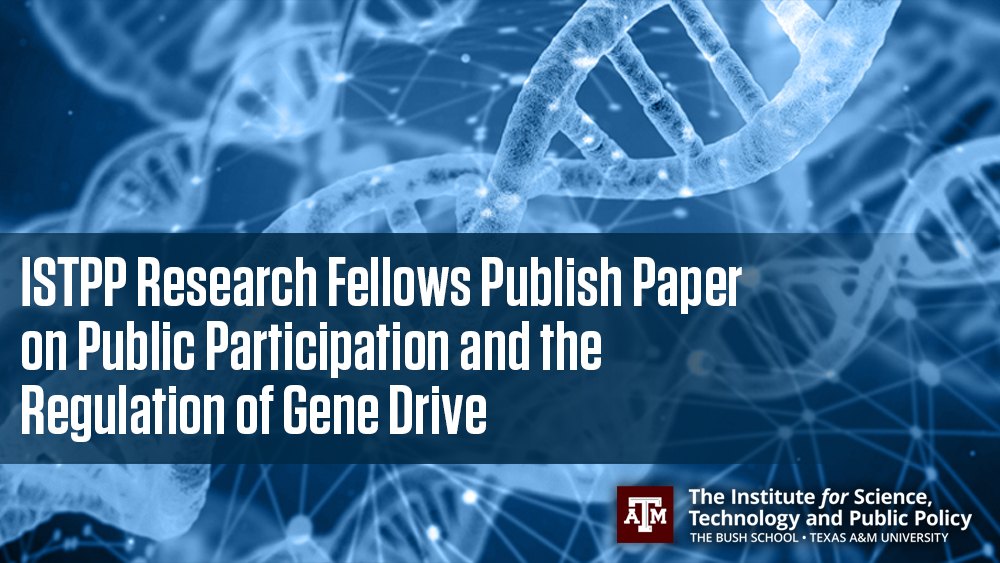
Dr. William West, Dr. Raul Medina, and Dr. Leah Buchman, all ISTPP Research Fellows at the Bush School of Government & Public Service, have recently published a paper based on a project funded by USDA-NIFA in Science and Public Policy. In their article, “Public Deliberation and the Regulation of Gene Drive in the USA,” they examine how the current system of biotechnology regulation limits participation by stakeholders representing environmental, economic, cultural, religious, and ethical concerns.
Long a source of criticism, these limitations will be especially problematic with regard to the possible use of gene drive for purposes such as vector control and the enhancement of agricultural productivity. Yet although the authors feel that reform is desirable, creating a more inclusive system of regulatory decision-making faces daunting challenges that have not been given their due. These include the practical difficulties of designing administrative processes that allow for viable participation by a broad range of interests, as well as political obstacles that are grounded in a current regime in the U.S. that favors the commercial application of biotechnology at the expense of other values.
The Institute for Science, Technology and Public Policy (ISTPP) was created by the Board of Regents in the fall of 2000 to fill a critical gap between science and technology research and public policy research. Through their research, scientists detect emerging problems that require policy actions to address them. For known social and environmental problems, science and technology may help find solutions. Our policy research proactively identifies the public and stakeholder’s acceptability parameters for science and technology applications.

